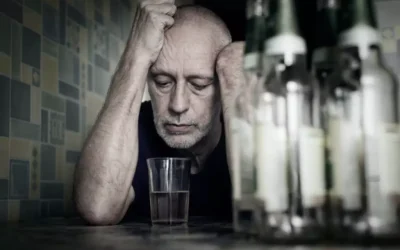Content
We come to understand that we are good people with a bad disease. Steps 8 and 9 help us to move out of the shame we have lived in, shame that feeds the cycle of substance use and addiction. We strengthen and reinforce healthy recovery whenever we do our part to repair relationships or reach out to others with support and understanding. Whether or not you’re intimately familiar with the Twelve Steps of AA, you’ve probably heard of Step Nine. Making Amends with Others has positioned itself in the public eye to a degree that many of the other eleven steps haven’t.

Such situations may allow for partial restitution only. And in some cases, you may not be able to make direct amends at all. However, you can still take action in all of these situations to satisfy the spirit and the intent of Step 9 and progress in your step work. This concept of “living amends” is an great example of “watering down” the 12 step program, for non-alcoholics (hard drinkers), who make the vocal majority of AA in 2009.
The Science of Step 9 AA: How Making Amends Can Help
For many who lived in addiction, apologizing was a regular habit. Whether it was apologizing for being late for work, missing an event, misusing property or stealing money to support an addiction, expressing remorse was likely a daily occurrence. The guilt may have been real, but the apology didn’t come with lasting change. Recovery support groups and individual therapy can help you if you are struggling to make amends or accept the responses of others.

When he runs out of medicine because he didn’t call the doctor for a refill, I trust he has the intelligence to solve his own problem. When he handles a situation at work “the wrong way” I keep my opinion to myself. The goal in making amends is “to freely admit the damage we’ve done and make our apologies,” according to The Big Book. In some cases, making amends may mean paying or promising to pay “whatever obligations, financial or otherwise, we owe,” the Big Book also states.
If You’re Struggling to Make Amends
Early in my recovery, I learned neither my son nor my husband was listening to anything I said. We are seeking accountability for our own actions and holding ourselves to the standards of our own values and our 12 Step program. Take a look at our state of the art treatment center. Sometimes it can be hard to know what to say when preparing to make amends.
With these kinds of promises, there may not be enough genuine intention of changing their hurtful patterns and behaviors. As Kessler describes, this woman may decide that her way of making amends is to always answer the phone when someone she loves calls after a fight. Though this cannot undo or directly compensate for the initial mistake, it can serve as living amends that comes through a different way of being in the world. In that act, your actions in their memory make you and the world a better place.
Alcoholics Resource Center
Remember, this is a Twelve Step process that can provide a platform for healing, but the person we are reaching out to may not be at the same place in healing as we are. We are only in control of our part—making and living the amends. As with alcohol and other drugs, we are also powerless over other people.
It takes a certain maturity and level of respect for yourself and the person you’re hoping to reconnect with to get past any past issues. For every time you said you’d be there or that you’d help someone do something living amends and didn’t show up, you’ve left an impression upon that person that they can’t rely on you to keep your word. You can start making amends by showing up, even if it’s years later, to do the things you said you’d do.
Evidence-Based Addiction Treatments and Step 9 AA
You may not be able to rectify “everything” you’ve done to the other person, but you can repair specific wrongs. Direct amends refers to going directly to the wronged individual, apologizing and taking whatever action is necessary to correct a situation. Those in recovery are encouraged to make direct amends whenever possible.
So be sure to talk with your sponsor and/or support group about your plan in the event that you need support. Even so, you will have done all that you can to take https://ecosoberhouse.com/article/alcoholic-ketoacidosis-symptoms-and-treatment/ responsibility for the past—and there’s a level of peace and freedom in that as well. How the other person chooses to respond to our amends is out of our control.
